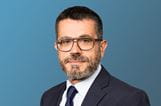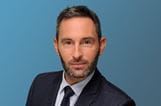- Home
- Blogs
- Investigations Insight
The French anti-corruption policy: more settlements with corporations and harsher prosecutions against individuals
Author
Browse this blog post
Recent guidelines from the French Minister of Justice reveal a heightened willingness of French authorities to combat corruption-related offences and to prosecute more individuals. The guidance, contained in a Circular, also strongly encourages corporations to voluntarily self-disclose internal suspicions of corrupt practices.
A call for self-reporting
The Circular calls for self-reporting by corporations, stressing that although they, nor their directors, may not be under any reporting duties, by volunteering information they can expect some leniency. A corporation can also increase its chances of being offered a French-style Deferred Prosecution Agreements (a DPA). The Circular clarifies the criteria which the French Minister of Justice expects prosecutors to take into account in assessing whether a DPA should be explored: the absence of a prior conviction, the voluntary disclosure of facts and the degree of cooperation.
The Circular invites the French National Financial Prosecutor's Office (i.e. the parquet national financier, the PNF) to open discussions with employers' unions in order to identify an adequate procedural framework for such self-disclosure, including with a view to maintaining confidentiality over initial discussions.
Comprehensive investigations - including companies with no presence in France
The goal set by the Minister of Justice is for the PNF to thoroughly identify the financial network and all of the individuals and legal entities involved in a corruption scheme, including by investigating foreign parties with no presence in France. International corruption cases are therefore meant to have a wide scope and the Circular records a wide variety of offences that may apply to, or in the context of, corrupt practices under French law, including:
- Influence peddling of foreign public officials;
- Money-laundering and concealment of the proceeds of a crime (recel);
- Misappropriation of corporate assets and breach of trust;
- Fraud and forgery;
- Publication or presentation of annual accounts that are not true or accurate; and
- Tax fraud.
Cracking down on individuals
The Circular openly calls for the strengthening of prosecution against individuals involved in corruption schemes, in particular against employees, managers, and individuals outside the company. It confirms that when assessing the appropriate procedural route (either a guilty plea or a referral before a French criminal court) prosecutors should take into account the individual’s criminal record, degree of involvement, their recognition of the relevant facts and their level of cooperation.
Increased enforcement risk: more channels for reporting of corrupt practices
The Circular emphasises the multiple information channels through which prosecutors may become aware of potential acts of corruption, in particular:
- Public servants who have a duty to report to criminal authorities any facts which they believe may constitute a criminal offence under French law;
- Statutory auditors, judicial administrators and legal agents who also each have a similar duty to notify such facts to public prosecutors;
- The French Anti-Corruption Agency, the Banking and Financial regulators, as well as the Competition authority and the High Authority for Transparency in Public Life;
- The French Financial Intelligence Unit, which receives thousands of suspicious activity reports from regulated entities each year, an increasing proportion of which is tied to potential corrupt practices;
- Anti-corruption associations (e.g. Sherpa, Anticor and Transparency International); and
- whistle-blowers whose protection was significantly increased by the so-called French “Sapin II law” enacted at the end of 2016 which has led to increasing whistle blowing reports.
The PNF is already a major player in the fight against corruption, including by cooperating with foreign authorities, notably in the US and UK, to reach global settlements of major investigations (e.g.the Société Générale and Airbus cases). For more information on white-collar crime developments in France and elsewhere see the Allen & Overy White Collar Crime and Investigations Review.



